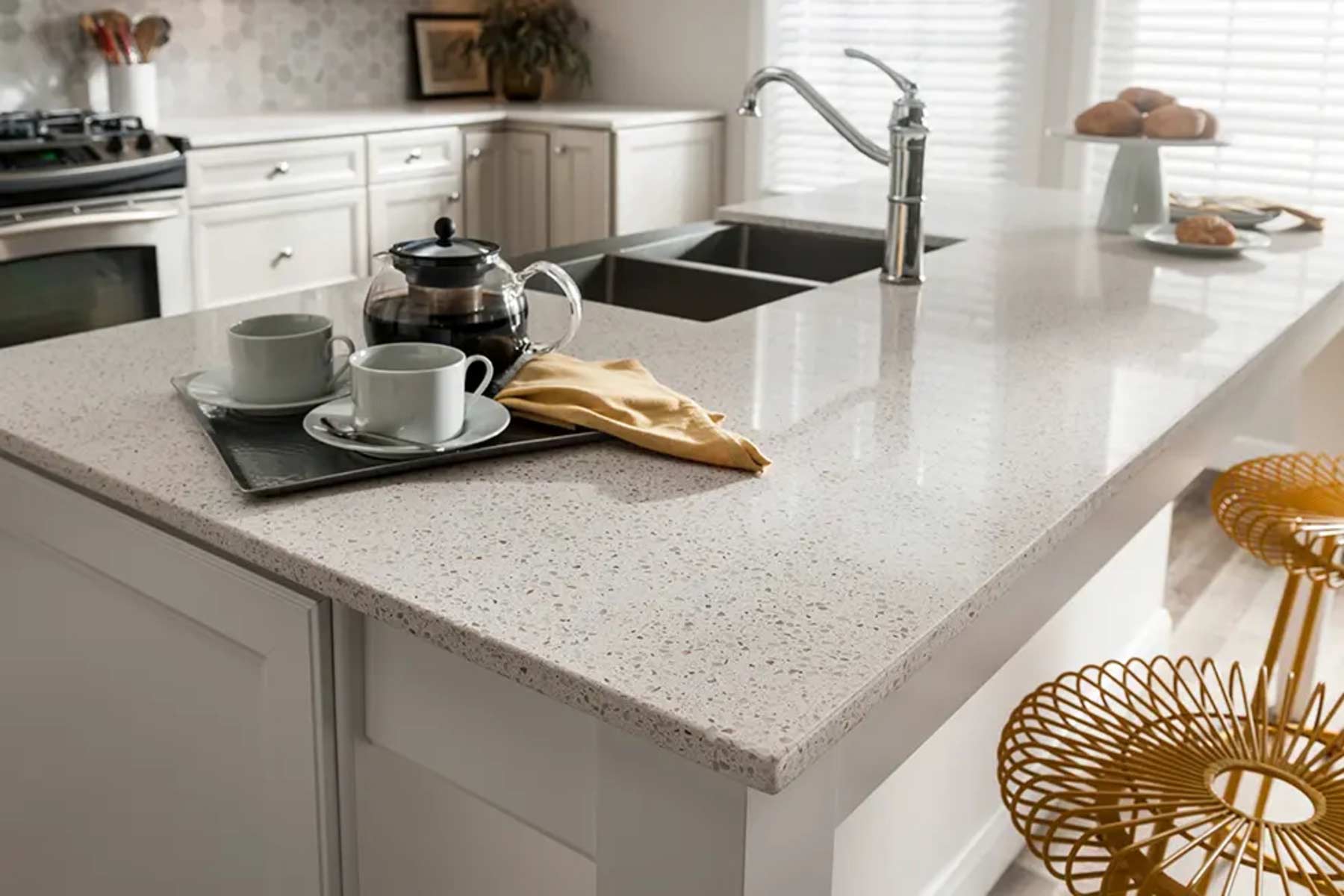

Articles
How Much Is Solid Surface Countertops
Modified: December 7, 2023
Looking for articles about solid surface countertops? Find out how much they cost and what factors can impact the price in this comprehensive guide.
(Many of the links in this article redirect to a specific reviewed product. Your purchase of these products through affiliate links helps to generate commission for Storables.com, at no extra cost. Learn more)
Introduction
Solid surface countertops have gained significant popularity in recent years due to their durability, versatility, and aesthetic appeal. These countertops are made from a combination of natural minerals and acrylic resins, resulting in a non-porous and seamless surface that is resistant to stains, scratches, and bacteria growth. They offer an attractive alternative to traditional countertop materials like granite or laminate.
With the variety of options available in the market, it’s important to understand the composition, advantages, and disadvantages of solid surface countertops before making a decision. Additionally, it’s crucial to consider the factors that affect their cost and how they compare with other countertop options in terms of price.
This article aims to provide a comprehensive overview of solid surface countertops, including their composition, pros and cons, pricing factors, and average costs. Furthermore, we will explore how solid surface countertops stack up against other materials and provide tips on how to save money on their installation. By the end of this article, you will have a thorough understanding of solid surface countertops and be well-equipped to make an informed decision for your kitchen or bathroom.
Key Takeaways:
- Solid surface countertops offer durability, customization, and easy maintenance, making them a versatile and hygienic choice for kitchens and bathrooms. Understanding pricing factors and comparing costs with other materials can help make an informed decision.
- By considering factors such as brand, color, and thickness, homeowners can estimate the cost of solid surface countertops. Researching and negotiating with suppliers, as well as exploring money-saving tips, can lead to a cost-effective and high-quality installation.
Read more: What Is A Solid Surface Bathtub?
The Composition of Solid Surface Countertops
Solid surface countertops are engineered using a blend of natural minerals, such as bauxite and alumina trihydrate, along with a binding agent, typically acrylic resin. This combination creates a homogeneous material that is both durable and visually appealing.
The manufacturing process begins with the mixing of these materials, which are then poured into molds to create large slabs or sheets. These slabs can be customized and cut into specific dimensions to fit the desired countertop shape and size. One of the key benefits of solid surface countertops is that they can be seamlessly joined together to create a smooth, continuous surface without visible seams.
Another notable characteristic of solid surface countertops is their non-porous nature. The dense composition of the material prevents liquids, including water, from penetrating the surface. As a result, these countertops are highly resistant to stains and bacterial growth, making them hygienic and easy to clean.
In terms of appearance, solid surface countertops offer a wide range of colors and patterns to choose from. These countertops can be manufactured to mimic the look of natural materials like marble or granite, or they can showcase vibrant, solid colors. This versatility allows homeowners and designers to select a style that complements their overall aesthetic vision for the space.
Additionally, solid surface countertops are typically renewable and repairable. If the surface becomes scratched or damaged, it can be easily sanded and refinished to restore its original appearance. This feature, along with the ability to seamlessly integrate sinks and other fixtures, makes solid surface countertops a popular choice for both residential and commercial applications.
Pros and Cons of Solid Surface Countertops
Like any countertop material, solid surface countertops come with their own set of advantages and disadvantages. Understanding these pros and cons can help you determine if they are the right choice for your kitchen or bathroom renovation. Let’s explore them in detail:
Pros of Solid Surface Countertops:
- Durability: Solid surface countertops are highly durable and resistant to scratches, stains, and heat. They can withstand daily wear and tear and are less prone to chipping compared to materials like granite or marble.
- Customization: These countertops can be fabricated to fit any shape or size, allowing for endless design possibilities. They can also be seamlessly joined together to create a smooth and continuous surface.
- Easy Maintenance: The non-porous nature of solid surface countertops makes them easy to clean and maintain. They do not require sealing or special cleaning products, as spills and stains can be easily wiped away with mild soap and water.
- Hygienic: Since there are no visible seams or gaps, solid surface countertops inhibit the growth of bacteria and mold. This makes them a hygienic choice, especially for kitchen countertops where food prep is involved.
- Aesthetics: With a wide range of colors, patterns, and finishes available, solid surface countertops offer ample opportunities to express your personal style and create a cohesive look in your space.
Cons of Solid Surface Countertops:
- Not Heat Resistant: While solid surface countertops have good heat resistance, they are not as heat resistant as materials like granite or quartz. Placing hot pots or pans directly on the surface can cause damage, so it’s important to use trivets or hot pads as a precaution.
- Prone to Scratches: Although solid surface countertops are resistant to scratches, they are not completely scratch-proof. Light scratches can occur with normal use, but these can be easily sanded out and refinished.
- Cost: Solid surface countertops can be more expensive than laminate but less expensive than natural stone options like granite or quartz. The cost can vary based on the brand, color, and thickness of the material.
- Not Resistant to Chemicals: Strong chemicals, such as bleach or abrasive cleaners, should be avoided as they can damage the surface. It’s best to use mild cleaning agents to maintain the longevity of the countertop.
Overall, solid surface countertops are a popular choice for homeowners looking for a durable, customizable, and low-maintenance countertop option. However, it’s important to weigh the pros and cons and consider your specific needs before making a decision.
Factors Affecting the Cost of Solid Surface Countertops
The cost of solid surface countertops can vary based on several factors. Understanding these factors will help you estimate the overall expense and make informed decisions. Let’s delve into the key factors that influence the cost of solid surface countertops:
1. Brand and Quality:
Different brands offer solid surface countertops at various price points. Premium brands often come with higher quality materials and finishes, which can increase the overall cost. It’s important to consider reputable brands known for their durability and reliability.
2. Color and Pattern:
The color and pattern of the solid surface material can impact the price. Basic or common color options tend to be more affordable, while unique or custom colors may come with a higher price tag. Additionally, complex patterns or designs can increase the cost due to the additional labor involved in producing and installing them.
3. Thickness of the Material:
The thickness of the solid surface material can impact the cost. Thicker countertops provide a more substantial and luxurious appearance but can be more expensive than thinner options. It’s important to strike a balance between aesthetics and budget when choosing the thickness of the material.
Read more: How Much Are Wood Countertops
4. Edge Treatment:
The style and complexity of the edge treatment can add to the cost of solid surface countertops. Basic edge profiles, such as straight or beveled edges, are usually included in the standard price. However, more elaborate and decorative edge profiles, such as bullnose or ogee edges, may come with additional charges.
5. Size and Layout of the Countertop:
The size and layout of the countertop will impact the overall cost. Larger countertops or those with complex shapes, angles, or cutouts for sinks and appliances may require more material and labor, leading to higher costs. It’s important to provide accurate measurements and consult with professionals to assess the impact on pricing.
6. Installation Costs:
The cost of installing solid surface countertops is determined by the complexity of the job and the location where they are being installed. Factors such as accessibility, existing cabinetry modifications, and the need for additional support structures can influence the installation costs. It is recommended to hire professional installers to ensure proper installation.
It’s essential to consider these factors and prioritize your needs and budget when selecting solid surface countertops. Consulting with professionals and obtaining multiple quotes from different suppliers will help you make an informed decision and achieve the desired aesthetic while staying within your budget.
Average Prices of Solid Surface Countertops
The cost of solid surface countertops can vary depending on several factors, including the material brand, quality, color, thickness, and size of the countertop. While it’s challenging to provide an exact price without considering these variables, we can provide a general guideline for the average prices of solid surface countertops.
On average, solid surface countertops range in price from $40 to $100 per square foot. This price range includes the material, fabrication, and installation costs. However, keep in mind that this is a broad estimate and prices can vary significantly based on the factors mentioned above.
Basic solid surface materials from mid-range brands typically fall within the lower end of the price range, averaging around $50 to $75 per square foot. These options may have limited color choices and fewer advanced features but still offer durability and quality.
Mid-range solid surface materials from reputable brands with a wider range of color options and enhanced features usually fall within the middle of the price range, averaging around $75 to $90 per square foot. These materials often come with better warranties and may have more intricate patterns and finishes.
Premium or designer solid surface materials from high-end brands can command prices at the higher end of the spectrum, or even beyond $100 per square foot. These materials offer a wider range of unique colors and patterns, superior quality, and advanced features.
It’s important to note that the prices mentioned above are for the material and average fabrication and installation costs. Additional costs, such as edge treatments, sink cutouts, or backsplash installations, may be charged separately. It’s best to consult with suppliers and fabricators to get a detailed quote based on your specific requirements.
Lastly, it’s worth mentioning that solid surface countertops have varying price points compared to other popular countertop materials. While they may be more expensive than laminate or tile options, which typically range from $20 to $50 per square foot, they are generally more affordable than natural stone materials like granite or quartz, which can range from $50 to $150 per square foot.
By understanding the average prices of solid surface countertops and considering your budget and priorities, you can make a more informed decision about the right material and price range for your project.
Read more: How Much Are Quartzite Countertops
Comparing the Cost with Other Countertop Options
When considering countertop options for your kitchen or bathroom, it’s important to assess the cost of solid surface countertops in comparison to other popular choices. Let’s take a look at how solid surface countertops stack up against some common alternatives:
Solid Surface vs. Laminate:
Laminate countertops are often the most budget-friendly option, with prices ranging from $20 to $50 per square foot. While they offer a wide variety of colors and patterns, they are not as durable or long-lasting as solid surface countertops. Laminate countertops are more prone to scratches and stains and may require more frequent replacement. Solid surface countertops may have a higher upfront cost, but they offer superior durability, longevity, and a more premium look.
Solid Surface vs. Granite:
Granite countertops are known for their natural beauty and durability. Prices for granite countertops typically range from $50 to $150 per square foot, with high-end exotic varieties costing even more. While granite countertops can add a touch of luxury and uniqueness, they require regular maintenance, sealing, and can be more prone to staining and chipping. Solid surface countertops offer a more versatile range of colors, easier maintenance, better resistance to stains, and a lower overall price point.
Solid Surface vs. Quartz:
Quartz countertops are engineered stone surfaces that offer the durability of natural stone with the added benefits of being non-porous and low-maintenance. Quartz countertops generally range from $50 to $150 per square foot, similar to granite. While quartz is highly resistant to stains, scratches, and heat, solid surface countertops have the advantage of being repairable and renewable. The cost of solid surface countertops is generally lower than quartz, making it a more affordable option without compromising on quality and aesthetics.
Read more: How Much Is Formica Countertops
Solid Surface vs. Marble:
Marble countertops are renowned for their timeless beauty and elegance. However, they come with a higher price tag, averaging from $60 to $200 per square foot. Marble requires rigorous maintenance, is vulnerable to scratches and stains, and can be more susceptible to heat damage. Solid surface countertops provide a more cost-effective alternative that mimics the look of marble while offering superior durability, easier maintenance, and a broader range of design options.
When comparing the cost of solid surface countertops to other options, it is clear that solid surface provides a balance between affordability and quality. While there may be lower-priced options available, solid surface countertops offer reliable durability, easy maintenance, and a wide range of design possibilities at a more reasonable price point compared to other premium countertop alternatives.
How to Save Money on Solid Surface Countertop Installation
While solid surface countertops offer numerous benefits, the cost of installation can sometimes be a concern for homeowners. However, there are several ways to save money on solid surface countertop installation without compromising on quality. Here are some tips to help you stay within your budget:
1. Research and Compare Prices:
Take the time to research different suppliers and fabricators in your area. Get multiple quotes and compare prices, making sure to consider the overall value in terms of material quality, warranty, and customer reviews. Don’t hesitate to negotiate and inquire about any ongoing promotions or discounts.
2. Choose Standard Colors and Finishes:
Opting for standard colors and finishes that are readily available can help reduce costs. Custom or unique colors may require additional manufacturing or sourcing fees, so sticking to popular or in-stock options can be an effective way to save money.
3. Consider Thinner Thickness:
While solid surface countertops are generally available in standard thicknesses, opting for a thinner slab can lower the overall cost. Thinner countertops can still offer durability and functionality while saving on material expenses.
4. Limit or Simplify Edge Treatments:
Elaborate edge profiles can add to the cost of fabrication and installation. Choosing simpler edge treatments, such as straight or beveled edges, can help reduce expenses. Discuss the available options with your fabricator to strike a balance between aesthetics and cost.
5. Reuse Existing Furniture or Cabinets:
If you are renovating your kitchen or bathroom, consider reusing existing furniture or cabinets rather than replacing them. This can help save costs by minimizing the need for additional modifications, resizing, or adjustments to accommodate the new countertops.
6. Do Some DIY Work:
While solid surface countertop installation is best left to professionals, you may be able to handle certain tasks yourself to save money. For example, removing the old countertops or preparing the area for installation can be done as a DIY project, reducing labor costs.
Read more: How Much Are Cambria Countertops
7. Prioritize Local Fabricators:
Choosing local fabricators can help save on transportation and shipping costs. Additionally, local fabricators may have established relationships with suppliers, enabling them to negotiate better prices on materials and pass on the savings to you.
8. Ask about Remnants:
Remnants are leftover pieces of solid surface material from previous projects. Inquire with fabricators if they have any remnants available at discounted prices. These remnants can be a cost-effective option for small countertop projects, such as bathroom vanities, saving you money on material costs.
Remember, while it’s important to save money, you should also prioritize quality and durability when investing in solid surface countertops. Cutting corners on material quality or installation can lead to future expenses and dissatisfaction. By incorporating these money-saving tips and working closely with reputable professionals, you can achieve a beautiful and cost-effective solid surface countertop installation.
Conclusion
Solid surface countertops offer a durable, versatile, and visually appealing option for your kitchen or bathroom. Their composition of natural minerals and acrylic resins creates a non-porous and seamless surface that is resistant to stains, scratches, and bacterial growth. With a wide range of colors and patterns to choose from, solid surface countertops can be customized to suit any design aesthetic.
While solid surface countertops come with their unique set of pros and cons, including durability, customization options, easy maintenance, and hygienic properties, it’s important to consider the factors that affect their cost. Elements such as brand and quality, color and pattern, thickness of the material, edge treatment, and installation costs all play a role in determining the overall expense.
Comparing the cost of solid surface countertops to other options reveals its affordability compared to materials like granite, quartz, and marble. While laminate countertops provide a budget-friendly alternative, solid surface countertops offer superior durability and a more premium look. Additionally, with proper research, negotiation, and consideration of standard colors and finishes, it’s possible to save money on solid surface countertop installation.
In conclusion, solid surface countertops strike a balance between functionality, aesthetics, and cost-effectiveness. By understanding their composition, pros and cons, pricing factors, and average costs, you can make an informed decision and invest in a countertop that meets your needs and fits your budget. Consult with professionals, obtain multiple quotes, and prioritize quality to ensure a successful installation that will enhance the beauty and functionality of your space for years to come.
Frequently Asked Questions about How Much Is Solid Surface Countertops
Was this page helpful?
At Storables.com, we guarantee accurate and reliable information. Our content, validated by Expert Board Contributors, is crafted following stringent Editorial Policies. We're committed to providing you with well-researched, expert-backed insights for all your informational needs.
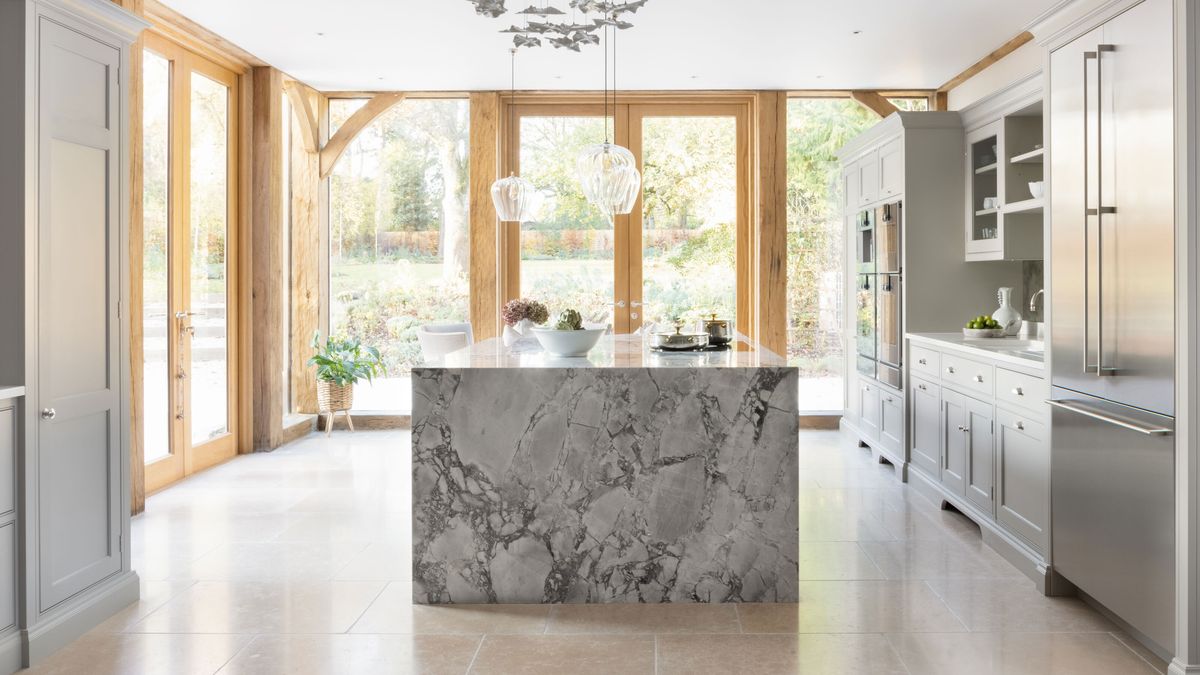
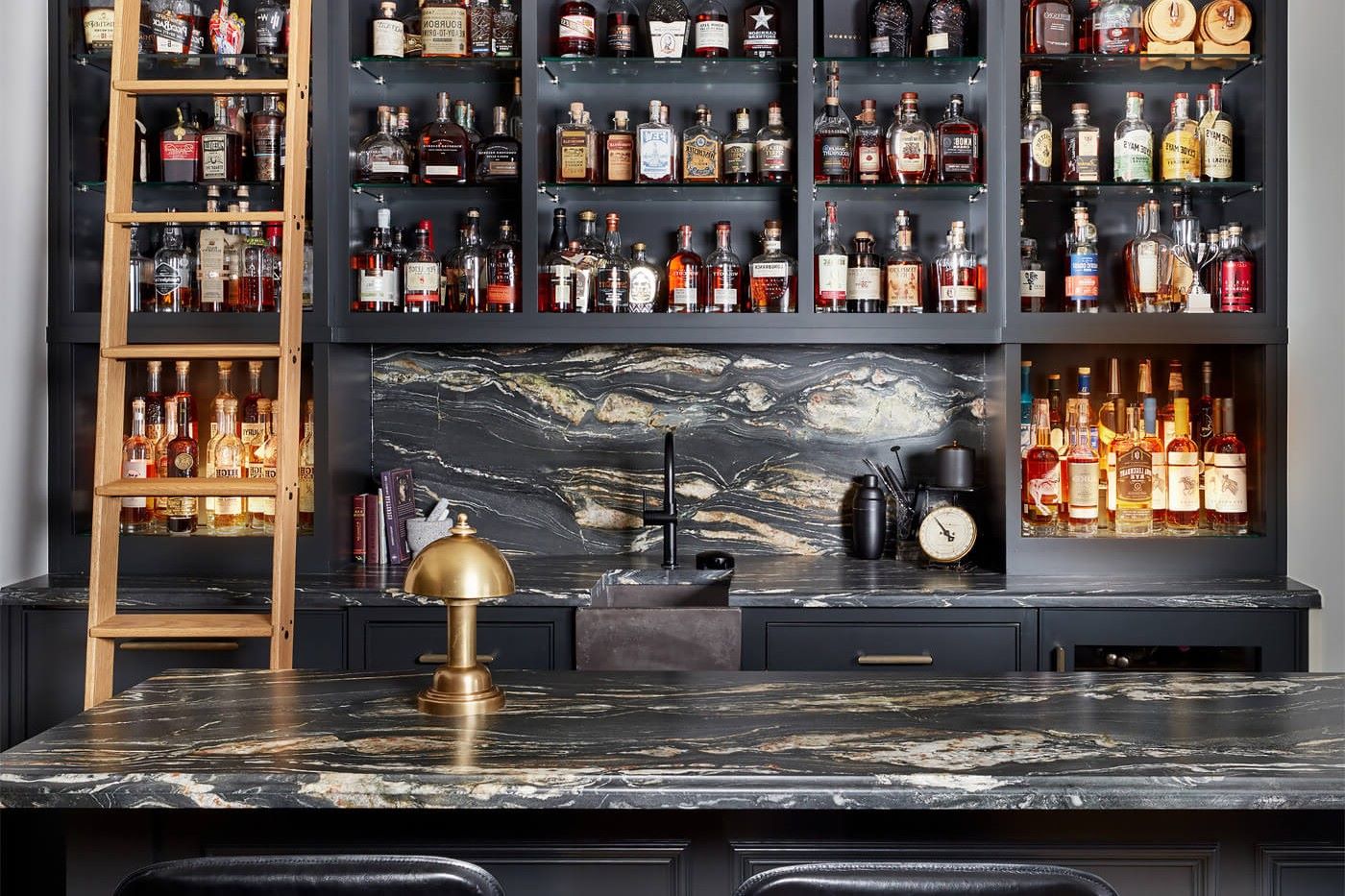
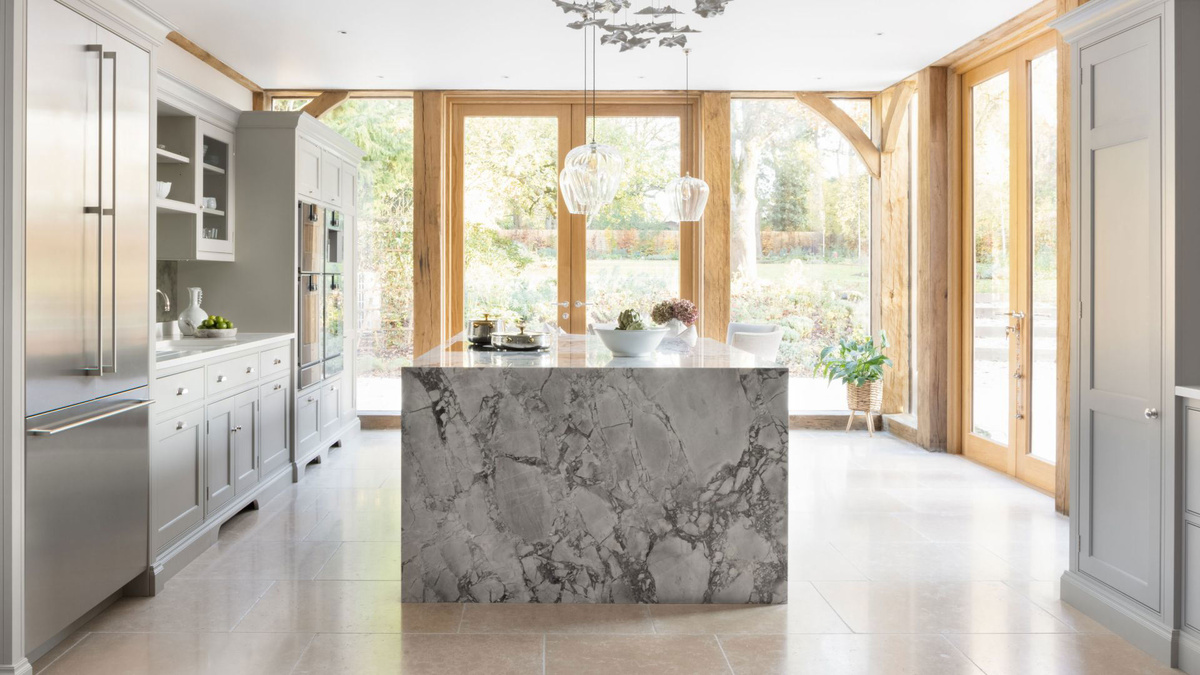
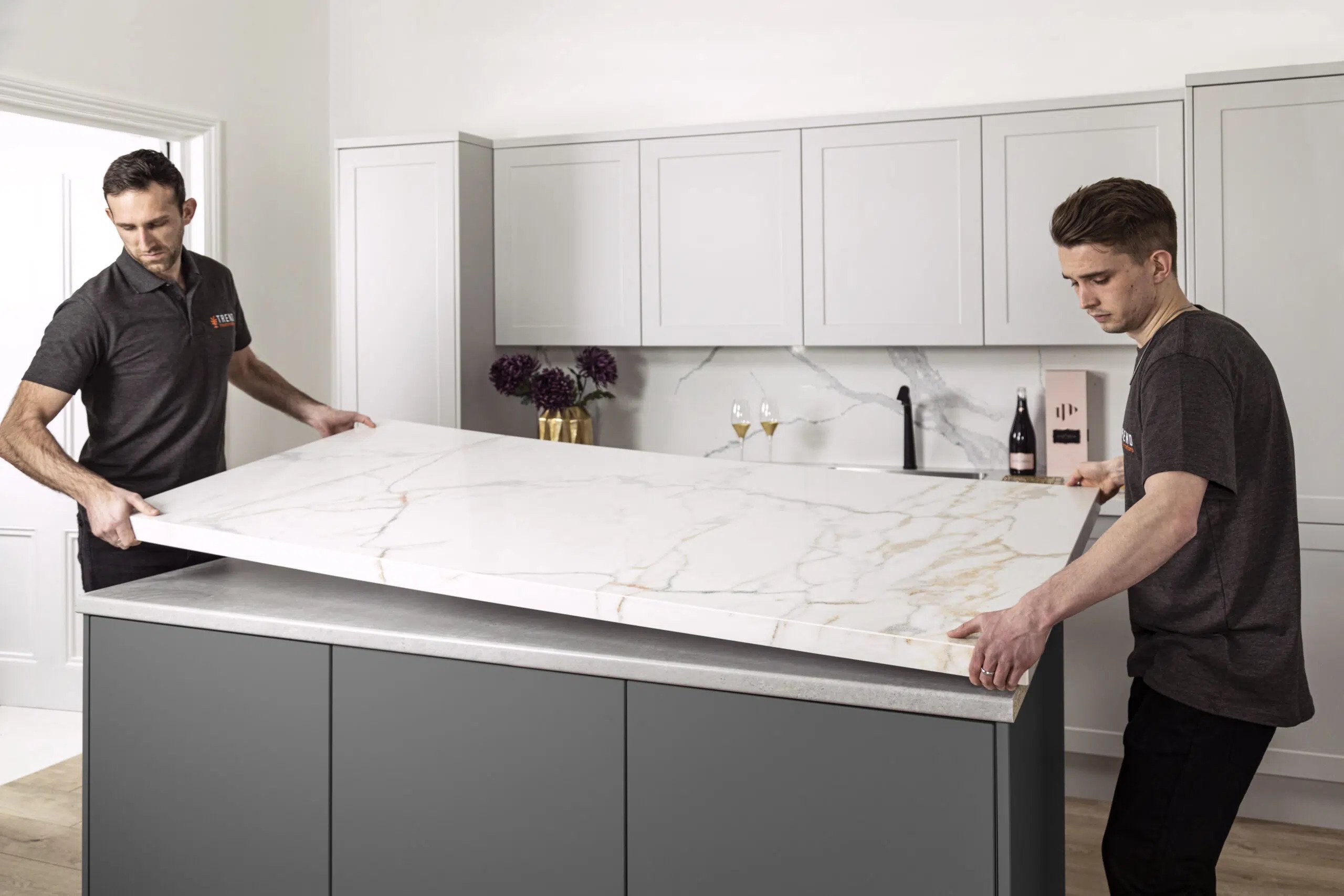
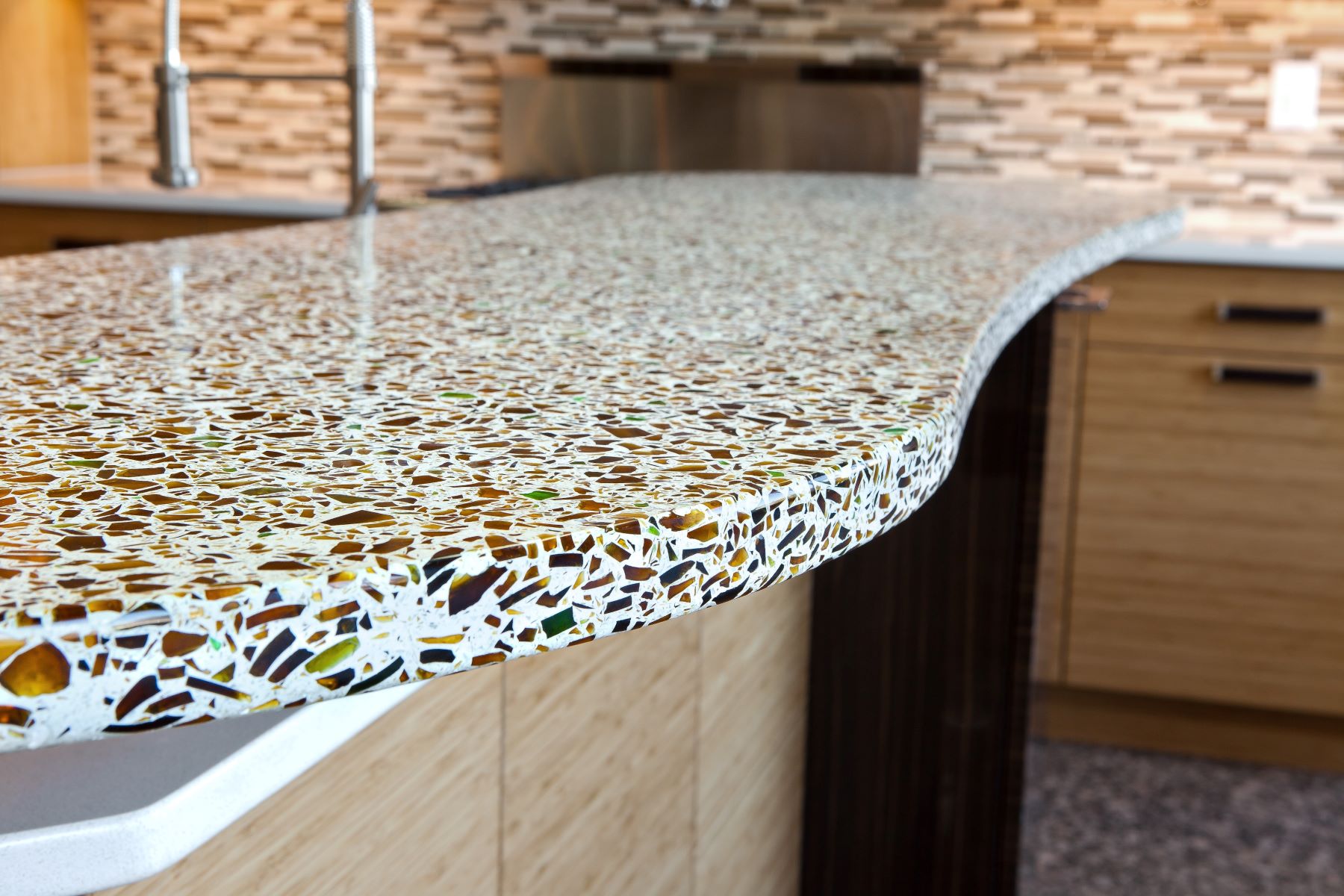
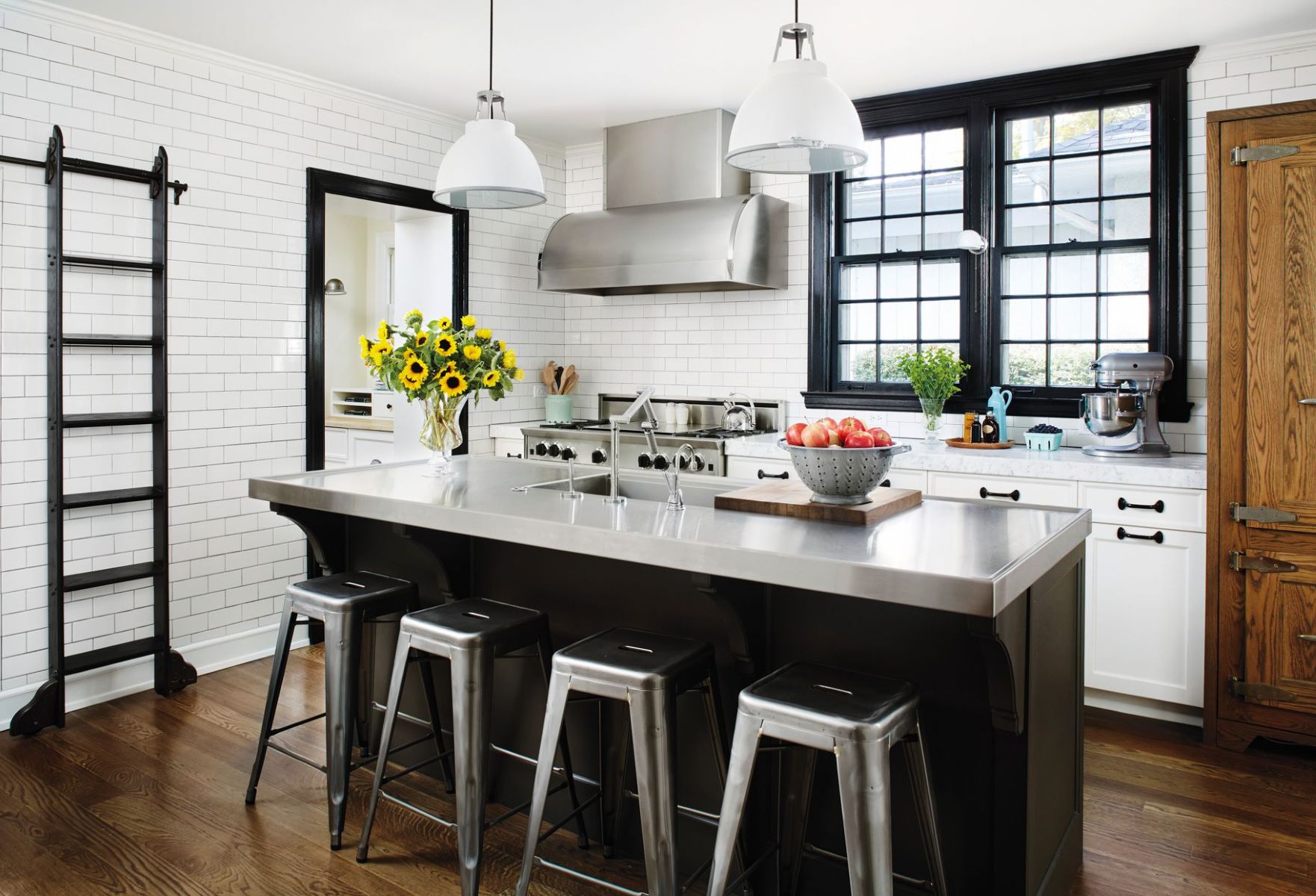
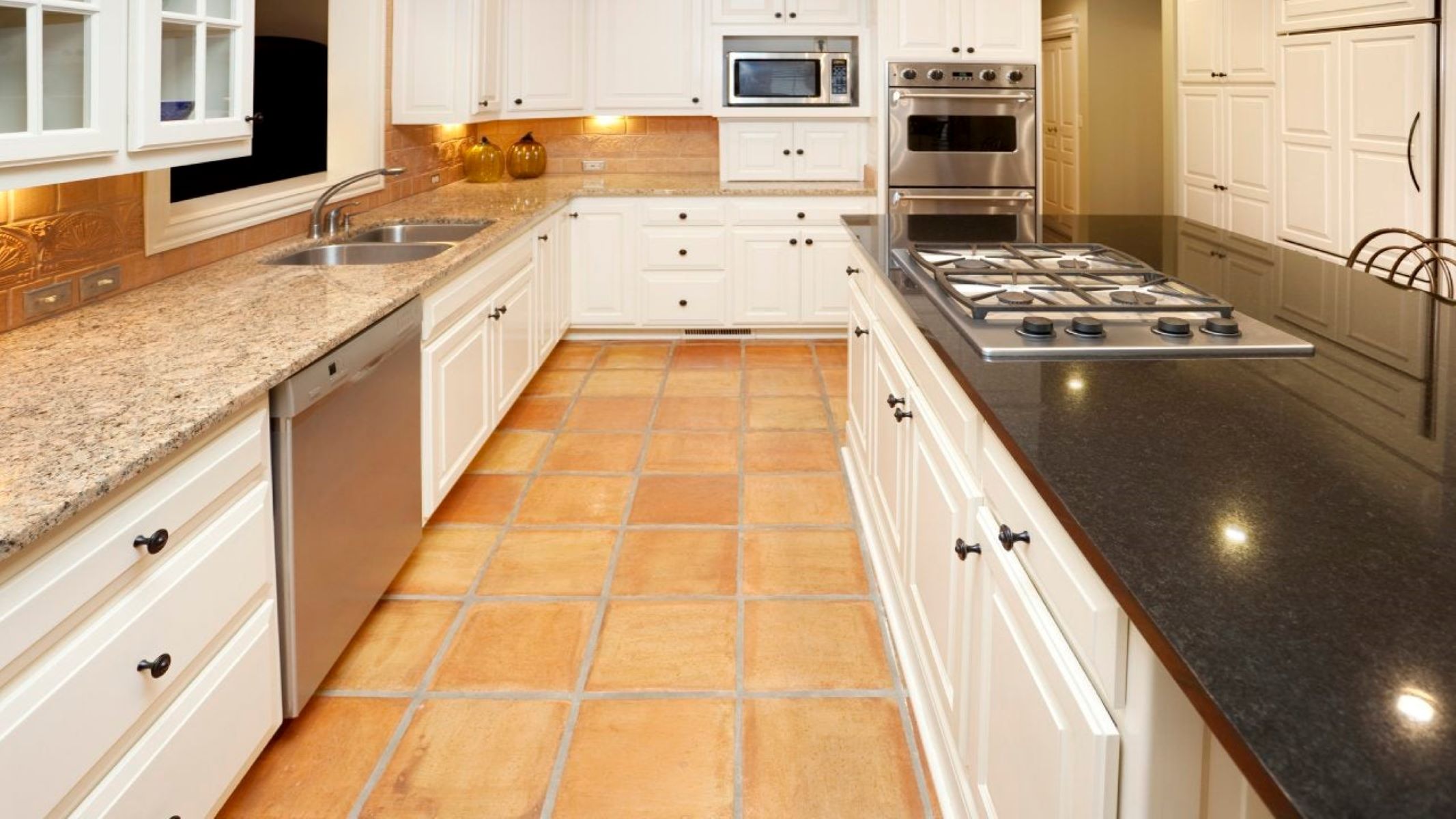
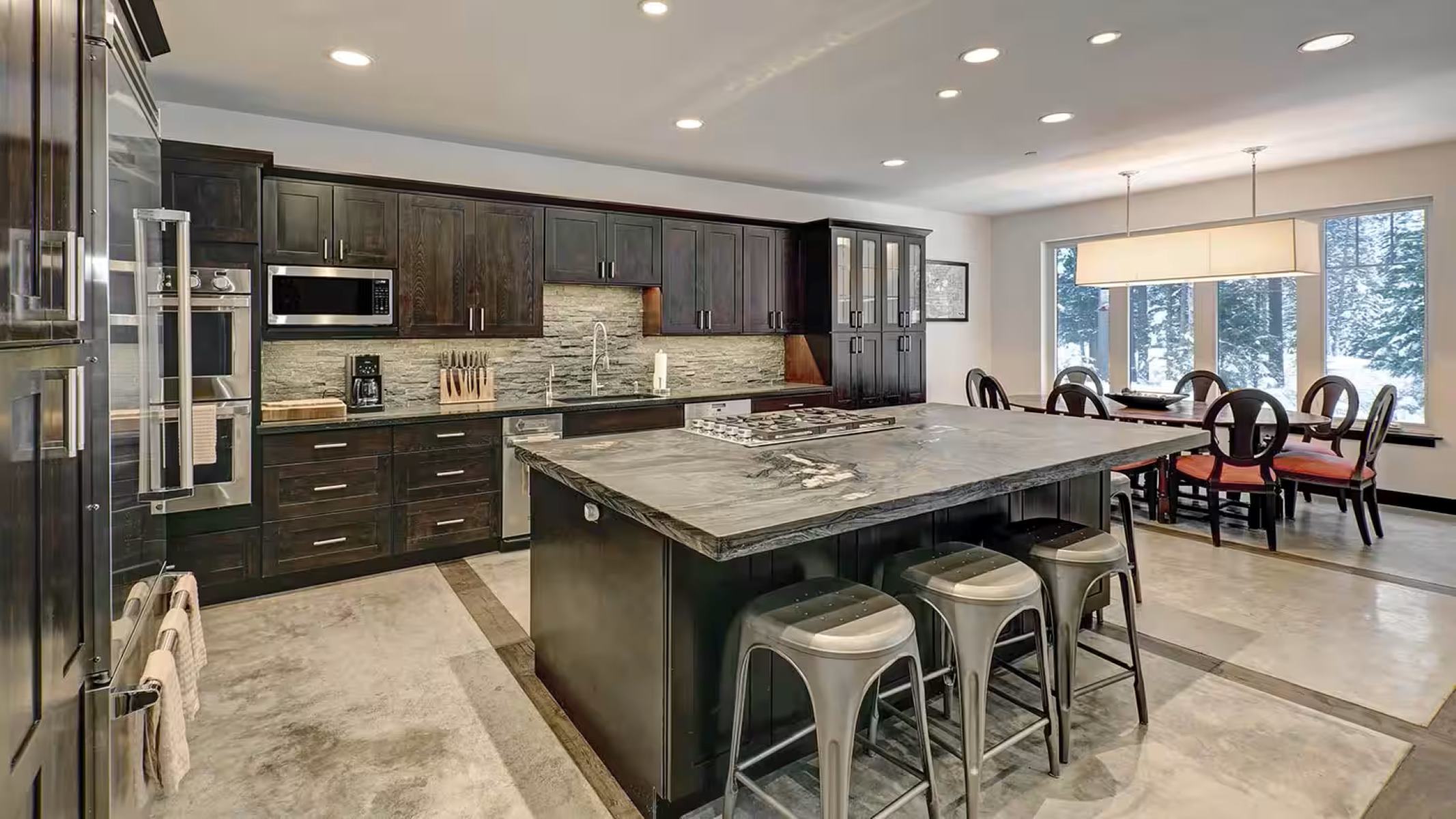
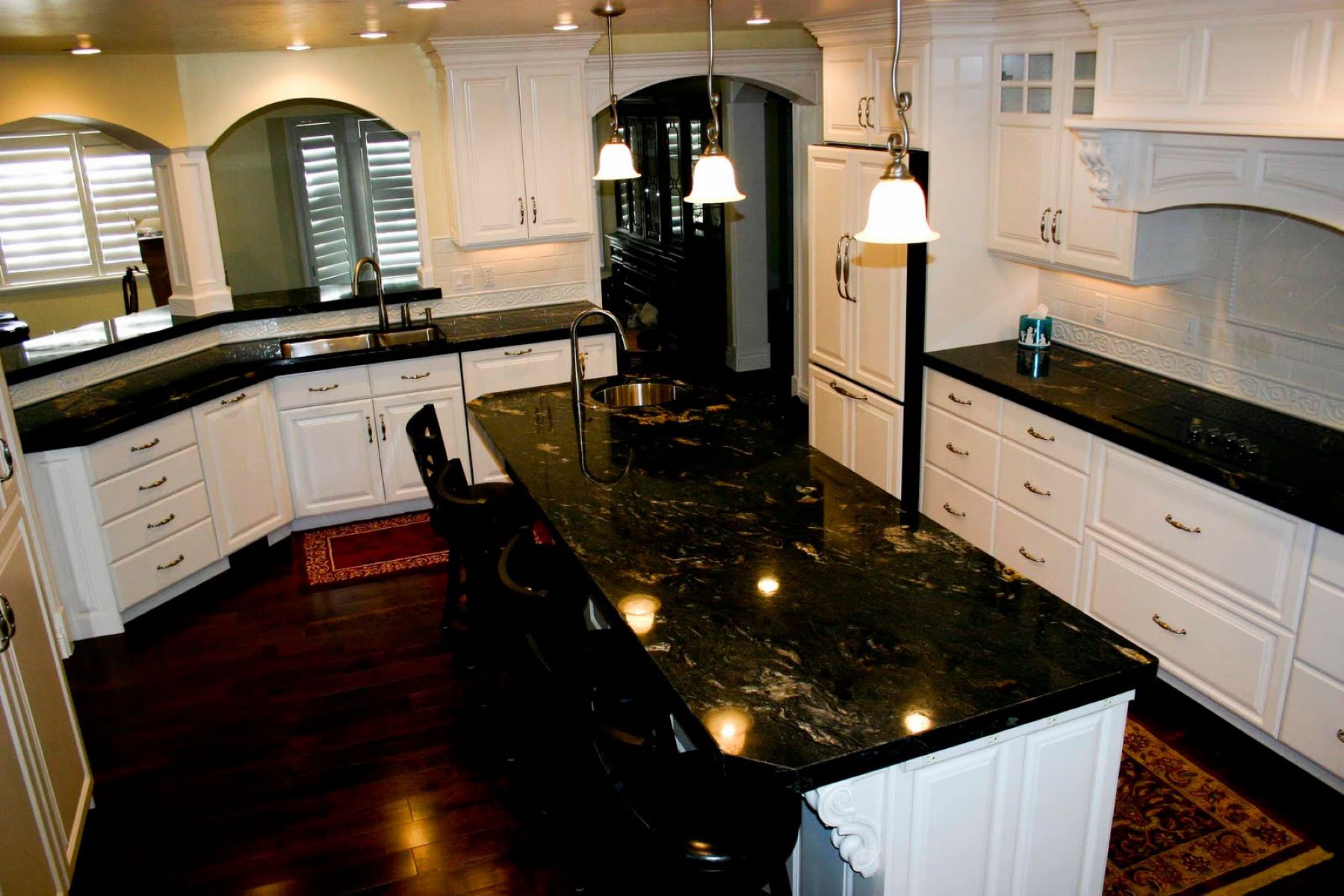

0 thoughts on “How Much Is Solid Surface Countertops”